Controversial issues
The legacy of the past and its impact on the present, as well as the process of interpretation by which accounts of the past are constructed, mean that many topics studied in history may carry an emotional charge. Certain events or developments may have a particular relevance – or resonance – for some young people and their communities, but carry different overtones (or none at all) for others. This section contains advice and resources for teachers who are tackling potentially sensitive topics that may generate emotionally charged responses and explores the issues that may arise as topics studied in the classroom intersect with personal, family and community histories. The materials here will help teachers to reflect carefully on the appropriateness of their objectives and to develop effective teaching strategies for promoting sensitive and productive kinds of discussion, especially when both the past and its implications for the present are disputed. They highlight the risks involved and the ways in which they can be mitigated, and include guidance and advice related to the Prevent Strategy.
-

Move Me On 153: Teaching about genocide
ArticleClick to view -

Moving Year 9 towards more complex causal explanations of Holocaust perpetration
ArticleClick to view -

My journey to Bosnia: The Balkans Conflict 22 years on
Multipage ArticleClick to view -
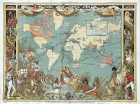
Navigating the ‘imperial history wars’
ArticleClick to view -

New, Novice or Nervous? 153: Good Enquiry Questions
ArticleClick to view -

New, Novice or Nervous? 166: Controversial issues
ArticleClick to view -

Nutshell 127
ArticleClick to view -

Podcast Series: Confronting Controversial History
Multipage ArticleClick to view -
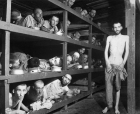
Polychronicon 153: Re-interpreting Liberation: the end of the Holocaust?
ArticleClick to view -

Putting Catlin in his place?
ArticleClick to view -
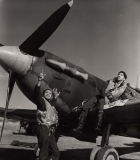
T.E.A.C.H Online
Multipage ArticleClick to view -

TEACH Statement
4th March 2008Click to view -
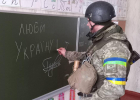
Teaching about the Russian invasion of Ukraine and events happening there
ArticleClick to view -

Teaching the very recent past
ArticleClick to view -

Telling difficult stories about the creation of Bangladesh
ArticleClick to view -

The History of Afro-Brazilian People
ArticleClick to view -

The T.E.A.C.H. Project
ArticleClick to view -
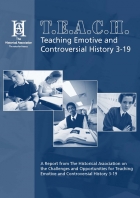
The T.E.A.C.H. Report
ArticleClick to view -

Transatlantic slavery – shaping the question, lengthening the narrative, broadening the meaning
ArticleClick to view -
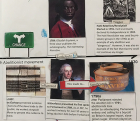
Unravelling the complexity of the causes of British abolition with Year 8
ArticleClick to view

